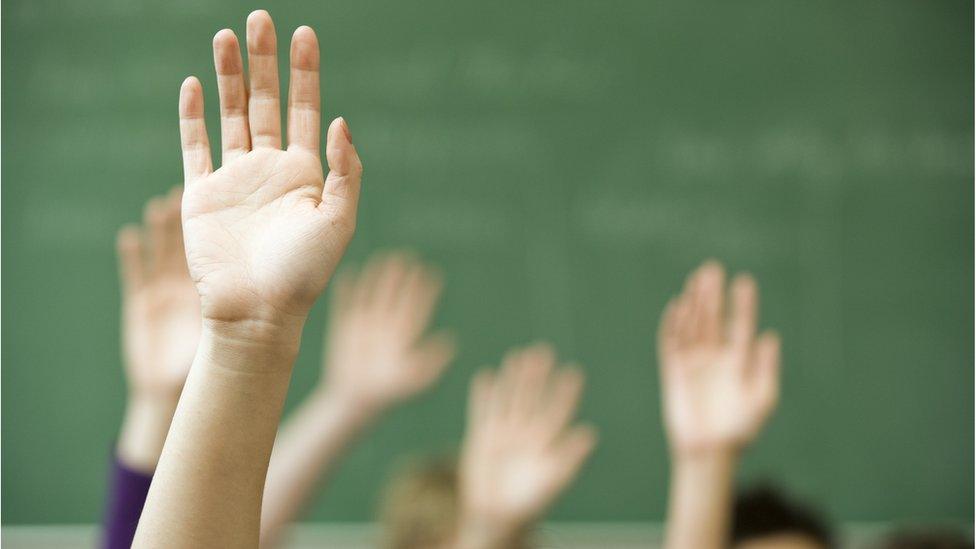Covid-19: Eight times as many pupils in school this lockdown
- Published
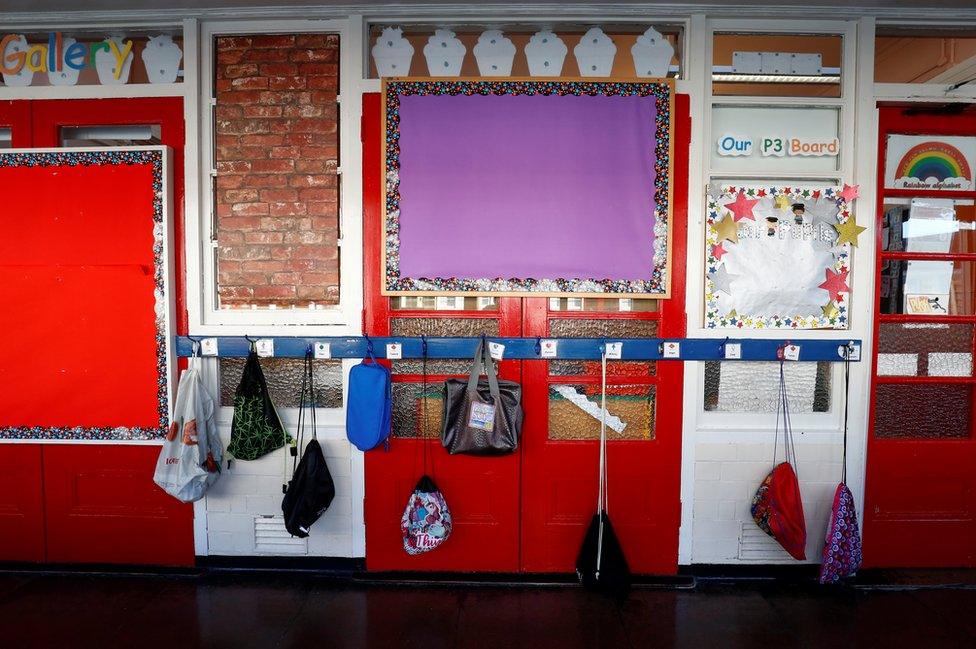
At least eight times as many pupils in Northern Ireland attended schools in the first week of term in 2021 as in the first lockdown in 2020.
Part of the increase is due to special schools remaining open for all pupils, unlike in March to June last year.
However, Department of Education (DE) statistics suggest many more children of key workers and vulnerable children are going to school.
Most school pupils are being taught remotely until at least mid-February.
However, children of key workers and vulnerable children can still attend school.
That was also the case during the lockdown in March to June last year, when just over 2,000 children a day at most attended school.
Nine in 10 pupils learn remotely
The department carried out a survey about how many pupils were in school on Tuesday 12 January.
Almost 70% of pre-schools, primaries and post-primaries responded - a total of 851 schools.
Those schools reported that 14,787 children were attending school - over 7% of their pupils.
But almost nine in 10 pupils were reported as learning remotely.
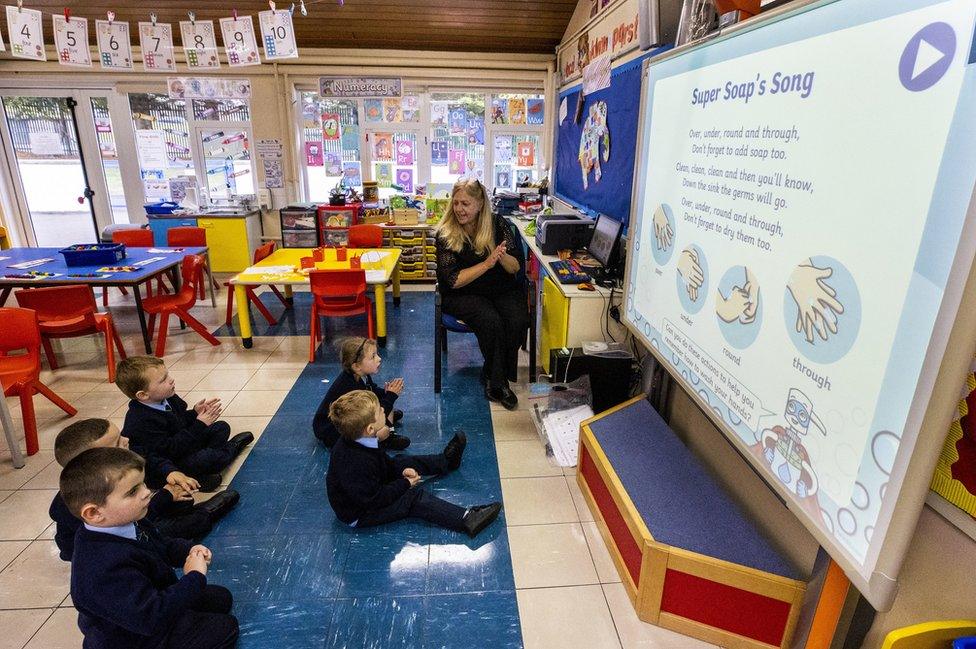
At most about 2,000 children a day attended school in Northern Ireland during the lockdown last spring
Four out of five children classed as vulnerable were reported by schools to be either in school or learning remotely but almost 20% were not.
A total of 28 out of 39 special schools responded to the survey.
Just over 2,500 pupils were in those special schools, about 48% of all pupils who normally attend.
Another 2,000 pupils in those schools were learning remotely, although almost 16% of children were neither in class nor learning online.
However fewer than three-quarters of teachers (72%) in special schools were actually in school.
About 13% were working remotely and almost 15% were not available for work.
About 25% were not in school as they either had Covid-19 or were self-isolating, while another 25% were not in school as they were classed as vulnerable.
Just over three-quarters of non-teaching staff were physically working in special schools.
On Thursday, Fleming Fulton Special School in Belfast told parents of pupils they could only attend for two days a week from Monday 18 January.
- Published14 January 2021
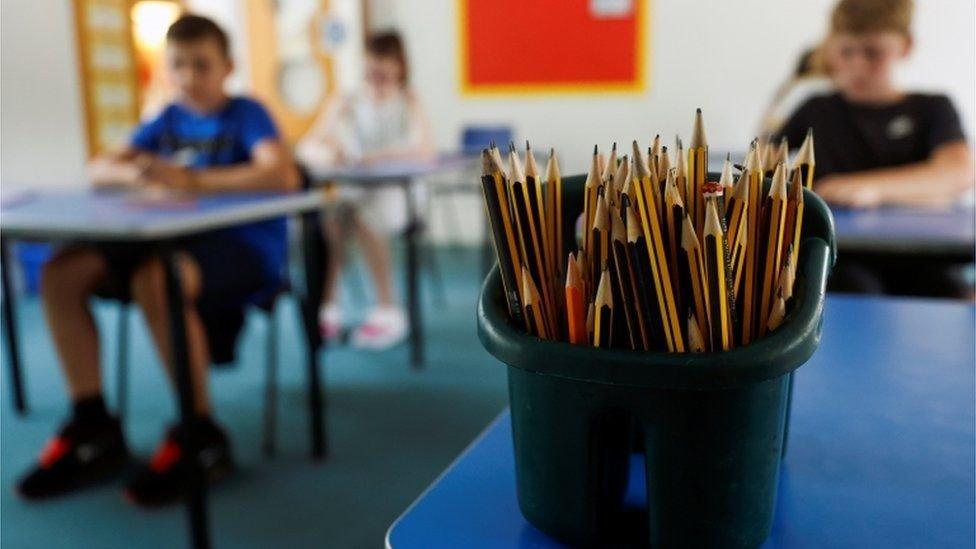
- Published11 January 2021
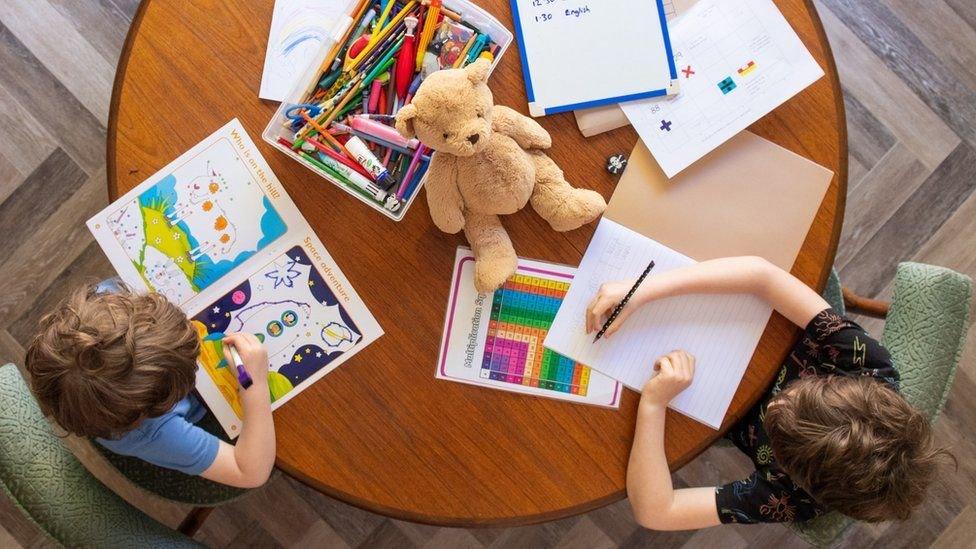
- Published13 January 2021
